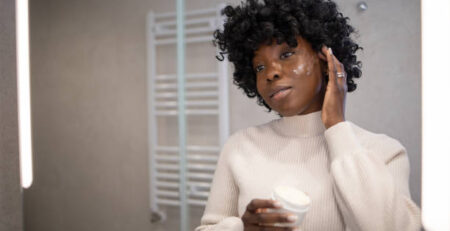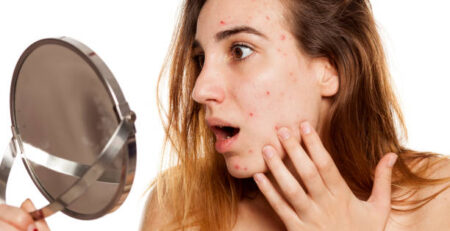Common Misconceptions About Acne in Nigeria
In Nigeria, as in many other countries, there are numerous misconceptions about acne that can lead to confusion and improper management. It’s crucial to separate fact from fiction to ensure individuals have accurate information and can make informed decisions about their skincare. This article aims to debunk some of the most common misconceptions about acne in Nigeria.
Misconception 1: Acne Only Affects Teenagers
One of the most widespread misconceptions about acne is that it only affects teenagers. While it’s true that hormonal changes during puberty can trigger acne breakouts, acne can occur at any age, including adulthood. Factors such as genetics, hormonal imbalances, diet, and environmental factors contribute to acne development. Recognizing that acne can persist beyond the teenage years is essential for proper management and treatment.
Misconception 2: Acne is Caused by Poor Hygiene
Another common misconception is that acne is solely caused by poor hygiene. While maintaining good skincare practices is important, acne is not solely the result of dirt and oil on the skin. Genetics, hormonal fluctuations, diet, and even stress play significant roles in acne development. Over-cleansing the skin or using harsh products can exacerbate the condition by stripping the skin’s natural oils, leading to increased oil production and more breakouts.
Misconception 3: Eating Fried Foods and Chocolate Causes Acne
The belief that consuming fried foods and chocolate directly causes acne is prevalent in Nigeria, as in many other cultures. However, scientific evidence linking specific foods to acne is limited. While diet might influence some individuals, acne is a multifactorial condition influenced by genetics, hormones, and other factors. A balanced diet rich in fruits, vegetables, whole grains, and lean proteins can contribute to overall skin health but won’t completely prevent acne.
Misconception 4: Acne Will Go Away on Its Own
Many people hold the misconception that acne will naturally resolve itself over time, and therefore, they need not seek treatment. While some cases of mild acne might improve without intervention, moderate to severe acne often requires medical attention. Delaying treatment can lead to scarring, hyperpigmentation, and emotional distress. Consulting a dermatologist ensures personalized treatment plans that address the underlying causes of acne and prevent long-term consequences.
Misconception 5: Acne Only Affects Facial Skin
Acne doesn’t restrict itself to the face alone; it can develop on various parts of the body, including the chest, back, shoulders, and even the buttocks. This misconception can lead to inadequate treatment and neglect of acne in these areas. Proper skincare routines and, if necessary, professional advice should extend beyond the face to effectively manage acne wherever it occurs.
Conclusion
Clearing up these misconceptions about acne in Nigeria is vital for promoting proper skincare practices and dispelling myths that can hinder effective treatment. Recognizing that acne can affect anyone, regardless of age, and that it’s influenced by a combination of factors beyond hygiene and diet is crucial. Seeking guidance from dermatologists and adopting a holistic approach to skincare can help individuals effectively manage and reduce the impact of acne on their lives.







